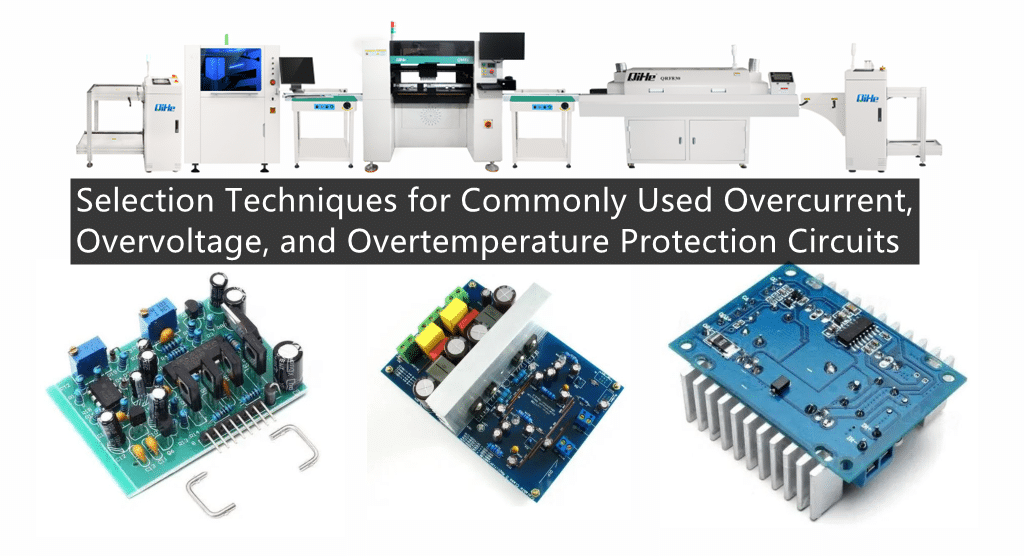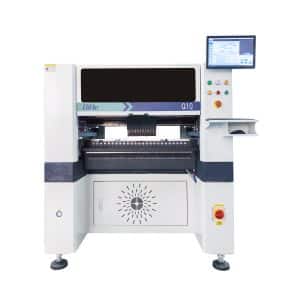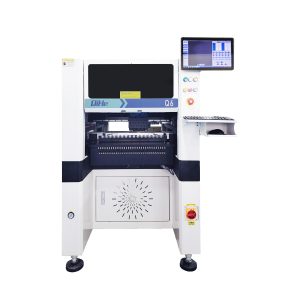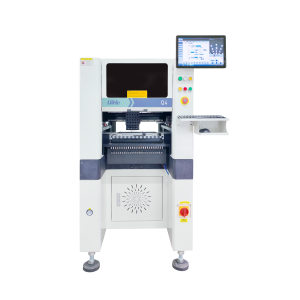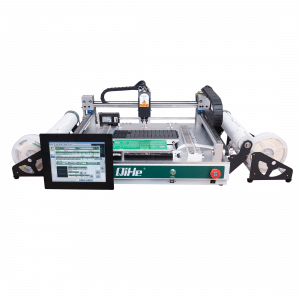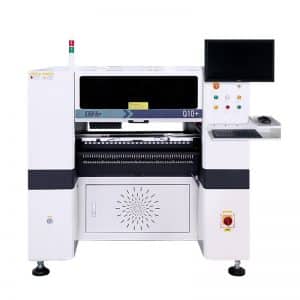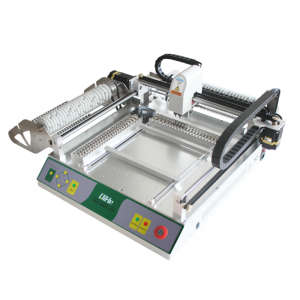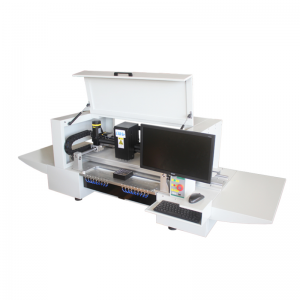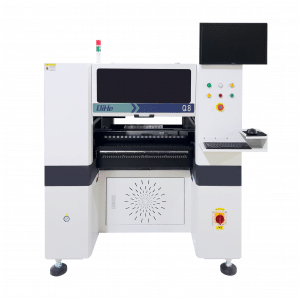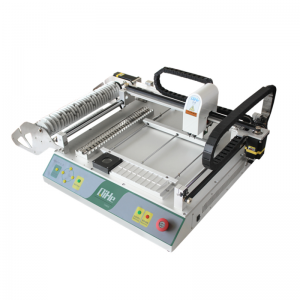With the increasing complexity and integration of electronic systems, and the decreasing working voltage, the requirements for reliability, stability, and safety in electronic systems are also increasing. The importance of circuit protection design is also increasing. In circuit protection design, the selection and application of circuit protection devices will directly affect the protection effect of electronic system circuit protection schemes.Today qihe smt pick and place machine sharing Selection Techniques for Commonly Used Overcurrent, Overvoltage, and Overtemperature Protection Circuits .
In order to assist engineers in selecting circuit protection devices correctly and designing efficient circuit protection solutions through rational application of circuit protection devices, this article will mainly introduce:
The first part introduces the selection techniques of common circuit protection devices;
The second part focuses on analyzing the practical application solutions of fuses, transient voltage suppressors, ESD protection devices, lightning protection devices, etc;
There are three main forms of circuit protection: overvoltage protection, overcurrent protection, and overtemperature protection.
Choosing appropriate circuit protection devices is the key first step in achieving efficient and reliable circuit protection design. So, how to reasonably select circuit protection devices? The protection principles of different protection devices vary, and the selection should be based on their protection principles, working conditions, and usage environment.
This article will introduce the selection techniques of several commonly used overvoltage, overcurrent, and overtemperature protection devices to help engineers choose circuit protection devices correctly.
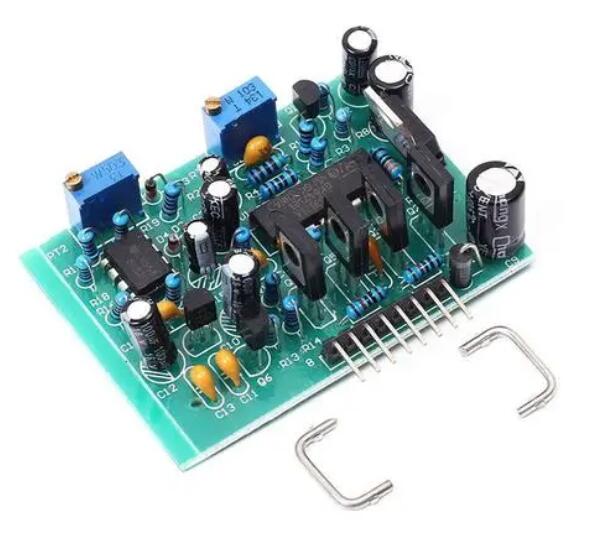
Key points for selecting overvoltage protection devices
Overvoltage protection devices (OVPs) are used to protect subsequent circuits from load shedding or instantaneous high voltage damage. Commonly used overvoltage protection devices include varistors, transient voltage suppressors, electrostatic suppressors, and discharge tubes. The selection of overvoltage protection devices should pay attention to the following four key points:
1) Selection of turning off voltage Vrwm. Generally, the shutdown voltage should be at least 10% higher than the highest working voltage of the line
2) Selection of clamping voltage VC. VC refers to the voltage passing through TVS during ESD impulse state, which must be less than the maximum transient voltage that the protected circuit can withstand
3) Selection of surge power Pppm. The protection time varies with different powers, such as 600w (10/1000us); 300W (8/20us)
4) The selection of interpole capacitance. The higher the operating frequency of the protected component, the smaller the capacitance of the TVS is required
ESD suppressor
The biggest challenge in selecting the appropriate ESD protection device is how to easily determine which device can provide the maximum protection. System suppliers generally compare the quality of ESD protection devices through the ESD rated value (or nominal value) in the data manual. In fact, from these ratings, it is impossible to see how strong the device protection system is, and the key depends on its diode parameters. The main reference coefficients should be:
Quick response time
Low clamping voltage
High voltage surge withstand capacity
The selection of ESD devices should follow the following requirements:
(1) Attention when selecting electrostatic protection devices:
The clamping voltage should not exceed the maximum withstand voltage of the protected device
The circuit voltage does not exceed the working voltage of the protective device
Minimize interference and losses as much as possible with low capacitance and leakage current
(2) Electrostatic protection devices should be installed as close as possible to the electrostatic input and away from the protected devices
(3) The electrostatic protection device must be connected to a large ground wire, not a digital ground wire
(4) The grounding circuit should be as short as possible, and the distance between the electrostatic protection device and the protected circuit should be as short as possible
(5) Try to avoid parallel routing of protected and unprotected lines as much as possible
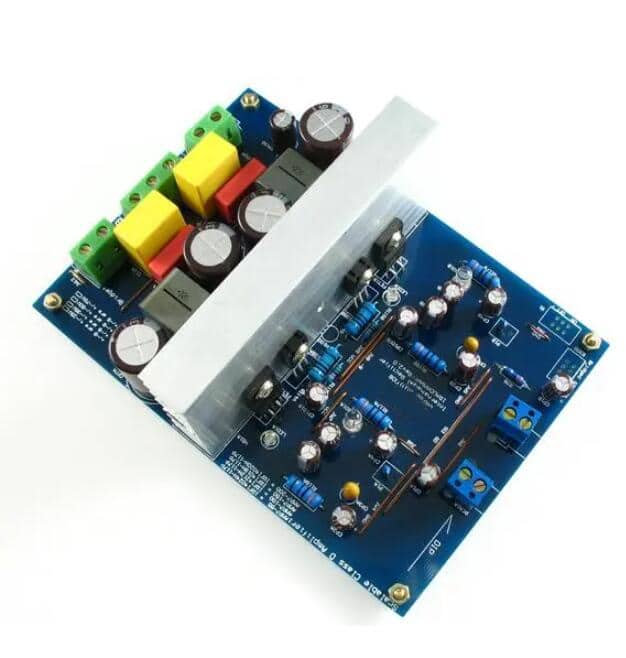
Varistor
Varistors are the most commonly used voltage limiting devices. Widely used in automotive electronics, communication, computers, consumer electronics, military electronics, etc., especially in LCD, keyboard, I/O interface, IC, MOSFET, CMOS, sensor, mobile phone, DVD, AV, ABS, motor control board, MP3, PDA, USB interface, and high-speed data signal line protection.
When selecting a varistor, it should be noted that the power supply voltage continuously applied to both ends of the varistor should not exceed the values listed in the specification table? Maximum continuous working voltage? ± value. It is also necessary to fully consider the fluctuation amplitude of the working voltage of the power grid (or circuit), and leave sufficient margin when selecting the voltage value of the varistor. The general fluctuation range in China is 30%. The maximum surge current through the varistor should not exceed the value specified in the technical specifications? Maximum impulse current? ± value (i.e. maximum flow rate). Considering the need to withstand multiple impacts, a surge current value that can withstand more than 10 impacts should be selected. The clamping voltage of the varistor must be less than the maximum voltage (i.e. safety voltage) that the protected component or equipment can withstand.
Transient voltage suppressor TVS
Transient voltage suppressor (TVS) is a high-efficiency protective device in the form of a diode. When the two poles of a TVS diode are subjected to reverse transient high-energy shocks, it can convert the high impedance between the two poles into low impedance at a speed of 10-12 seconds, absorbing up to several kilowatts of surge power, and clamping the voltage between the two poles at a predetermined value, effectively protecting precision components in electronic circuits from damage caused by various surge pulses.
Transient voltage suppression diodes (TVS) are widely used in overvoltage and ESD protection of semiconductors and sensitive electronic components, mainly including consumer products, industrial products, communication, computers, automobiles, power supplies, signal line protection, and military, aerospace, navigation systems, and control systems. The maximum clamping voltage VC cannot be greater than the maximum safe voltage of the protected equipment, and the reverse working voltage (reverse off state voltage) must be greater than the normal working voltage of the line. This is a problem that must be noted when using TVS tubes. In addition, AC voltage can only be used with bidirectional TVS.
The selection of TVS pipes should pay attention to the following points:
Determine the maximum DC or continuous operating voltage of the protected circuit, the rated standard voltage of the circuit, and the “high end” tolerance.
The TVS rated reverse turn off VWM should be greater than or equal to the maximum operating voltage of the protected circuit. If the selected VWM is too low, the device may enter avalanche or the normal operation of the circuit may be affected by excessive reverse leakage current. Serial connection for voltage sharing and parallel connection for current sharing.
The maximum clamping voltage VC of TVS should be less than the damage voltage of the protected circuit.
Within the specified pulse duration, the maximum peak pulse power consumption PM of TVS must be greater than the peak pulse power that may occur in the protected circuit. After determining the maximum clamping voltage, the peak pulse current should be greater than the transient surge current.
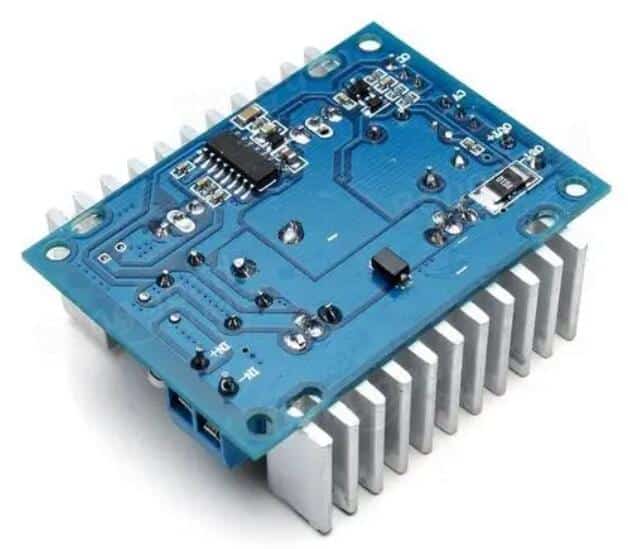
Ceramic gas discharge tubes
Ceramic gas discharge tubes are switch components used in common mode circuits of power lightning arresters to discharge lightning current to the ground, or can be connected in series with varistors in differential mode circuits to block their leakage current. In signal lightning protection devices, the first stage is often used to release surge current. Due to its slow response speed, the second stage is also used as voltage limiting protection.
When selecting ceramic gas discharge tubes, attention should be paid to:
Ceramic gas discharge tubes cannot be directly used on power sources for differential mode protection;
The breakdown voltage should be greater than the maximum signal frequency voltage on the line;
The withstand current should not be less than the maximum abnormal current that may occur on the line;
The pulse breakdown voltage must also be less than the voltage of the protected circuit.
Read more: Selection Techniques for Commonly Used Overcurrent, Overvoltage, and Overtemperature Protection CircuitsBest seller SMT Machine :Qihe smt line products
-
Q10 SMT Automatic pick and place machine 10 Heads 100 Slots High Precision and High Efficiency SMT/LED Assembly
-
Q6 SMT pick and place machine 6heads 50slots With PCB Rail Servo Pick&Place Machine
-
Q4 SMT pick and place machine 4heads 50slots With PCB Rail Servo Pick&Place Machine
-
TVM802B Plus SMT pick and place machine 2heads 58slots desktop pick&place deluxe edition
-
QM10 SMT pick and place machine 10heads 80slots Fully Automatic Chip mounter SMT Assembly
-
TVM802BX SMT pick and place machine 2heads 46slots desktop pnp mounter deluxe edition
-
QL41 SMT pick and place machine 4heads 8slots LED for 1.2meters led strip pick&place machine
-
Q8 SMT pick and place machine 8heads 80slots Fully Automatic Chip mounter SMT Assembly
-
TVM802AX SMT pick and place machine 2heads 29slots desktop deluxe edition SMT Pick&Place Machine
What is SMT in engineering?
Surface mount technology is a part of the electronic assembly that deals with the mounting of electronic components to the surface of a PCB. Electronic components mounted this way are called surface-mounted devices (SMD). SMT was developed to minimize manufacturing costs while making efficient use of board space.Qihe SMT company develops and produces all kinds of SMT equipment suitable for world wide market, including pnp machine,reflow oven,stencil printer,pcb handling machines,and other products.
Small desktop pick and place machine TVM802A,TVM802B,TVM802AX,TVM802BX series suitable for beginners, for hobbiest or low vol usag.
Advanced level 4-head LED strip placement QL41 led machines and with rail universal series Q4,TVM925S,TVM926S,pick and place
Fully automatic 6-10-head placement QM61,QM62,QM81,QM10,machines, which are suitable for high volume mass production in factories.
Know more about us https://www.qhsmt.com/about-qihe-smt-equipment/
Follow us on social media https://www.facebook.com/Qihesmt/
What is SMT in programming?
Offline Automated Programming vs Inline SMT Programming
Qihe pick and place machine can be programmed directly on the SMT equipment .
Or Coordinates can also be imported csv file through programming software.
Currently supported software such as protel,DXP,Altium Designer,Pads,Candes,proteus,DXP.
Inline SMT programming is a solution to consider for narrow segments of device programming requiring short programming times, with medium to high volume, for just one device type.
WHAT IS SMT pick and place machine?
SMT (Surface Mounted Technology) is a comprehensive system engineering technology, which covers substrates, design, equipment, components, assembly processes, production accessories and management. When it comes to SMT pick and place machines, the automatic SMT production line requires automatic loading and unloading machine, automatic solder paste printing machine, placement machine, reflow soldering machine, AOI inspection equipment, conveyor,connecting table, etc. For these SMT assembly line equipment, Qihe SMT can offer you machines in prototype SMT line, small SMT production line, mass production SMT line at low SMT line cost. Contact us now if you are interested.pick and place
WHAT IS SMT ASSEMBLY LINE?
With the development of technology, future electronic products will be lighter, smaller and thinner. Traditional assembly technology can no longer meet the requirements of high-precision and high-density assembly. A new type of PCB assembly technology-SMT (Surface Mount Technology) has emerged. SMT Assembly is the use of automated machines to assemble electronic components on the surface of the circuit board. Its density, high speed, standardization and other characteristics occupies an absolute advantage in the field of circuit assembly technology. In addition, SMT assembly has a wide range of uses.
https://www.qhsmt.com/fully-automatic-smt-pick-and-place-machine-line/

